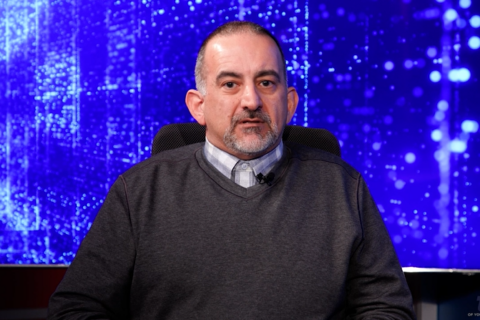This content is sponsored by PenFed Credit Union, federally insured by NCUA.
As a student, the start of the Fall semester often brings excitement and anticipation for the school year ahead. However, for many it may also bring financial stress and uncertainty.
Developing strong financial literacy skills is critical for students to gain control of their finances and set themselves up for success. Diccon Hyatt, a financial and economic news reporter for Investopedia, says that forming these skills at an early age provides kids with knowledge that will benefit them for life.
“Research has long shown that when it comes to teaching kids how to manage their money, it’s better to start young to build money knowledge and habits that will last a lifetime,” Hyatt says.
However, Brittany Griffin — policy and communications deputy at the Utah Office of State Treasurer — tells Investopedia that kids should also know how to use these skills.
“It’s one thing to know the skills, but it’s also highly beneficial to start learning how to apply them into your everyday life,” Griffin says. “In an ideal world, parents would start talking with their children about money very early on.”
Elementary school students are at an ideal age to begin learning responsible money habits and developing an understanding of basic financial concepts. As students progress through elementary school, they can build on their knowledge in an age-appropriate way.
For example, younger students may focus on identifying coins and bills, basic budgeting for small purchases, and saving money in a piggy bank. Older elementary students can learn about budgeting for bigger items, balancing financial accounts, investing, paying bills, and saving for long-term goals.
Students going away to college for the first time will likely experience their first taste of financial independence. For this population, Addition Financial recommends opening a bank account that is well suited for students.
Qualities of a good bank account for students include low or no fees, according to Addition Financial. An institution that provides financial tools and opportunities to learn are other ideal qualities.
“Your student account should be with an institution that prioritizes financial education and empowerment and provides an array of resources and tools to help students learn how to manage their money.”
PenFed Credit Union’s Free Checking account could be a good option for students starting their financial independence journey, offering both of these benefits and more.
“Standard checking accounts typically pay little to no interest, but starting here can help you determine your core needs. Once you have a standard account up and running, you can continue to shop for an account that’s more tailored to your preferences,” the experts at PenFed Credit Union said.
Students who have jobs can access their money up to two days early when setting up direct deposit with PenFed’s checking account. You can also check your balance, view transactions, and manage your account 24/7 online or through the mobile banking app. Additionally, there are over 85,000 fee-free ATMs nationwide, allowing you easy access to your funds.
PenFed Credit Union’s Free Checking account can be opened with as little as $25 and you will avoid the hassle of monthly maintenance fees.
Also as a Free Checking account holder, you can set up overdraft protection, which will allow a transaction to be covered when you do not have enough funds in your account.
Even without a PenFed account, you can educate yourself on financial matters at any time through PenFed’s online Learning Center.
Students can also learn to invest without the risk through savings accounts, which PenFed also offers.
“A lesson in investing is a key component in teaching financial literacy, which can also include lessons on earning, saving, reducing risk, spending, and borrowing,” Hyatt said.
Interest-bearing savings accounts can grow your savings even more and according to experian.com, having both a savings account and a checking account can make it easier to manage your money.
“Having two bank accounts compartmentalizes your finances, making it easier to manage your money. Use your checking account for everyday spending without dipping into your savings for long-term goals.”[DM1]
As students settle into the new school year, they may want to commit to gaining valuable money skills that will benefit them for life. Financial freedom starts with financial literacy – take that important first step today.
Read more about PenFed Credit Union’s Free Checking account on PenFed Credit Union’s website. PenFed Credit Union is federally insured by NCUA.







